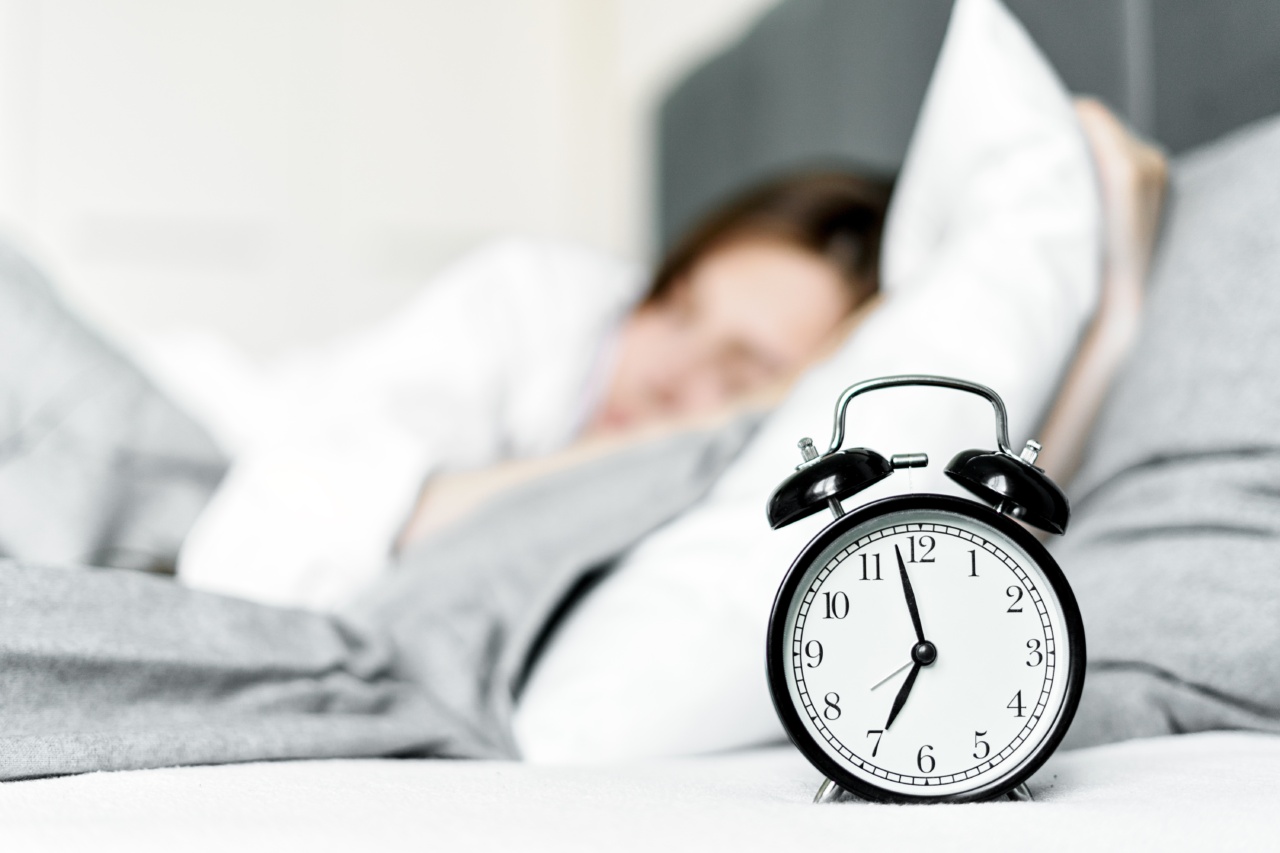Sleep is vital for leading a healthy life. Adequate sleep, defined as sleeping for 7-8 hours per night, promotes physical health, emotional and mental wellness, and cognitive functioning.
Unfortunately, in today’s fast-paced world where people are perpetually busy and stressed out, sleep often takes the backseat. Many people tend to sacrifice sleep or prioritize other activities over it, which can have disastrous consequences on our general wellbeing.
The Effects of Sleeping Less Than Seven Hours
Here are some of the most common effects of sleeping less than 7 hours:.
1. Weakened Immune System
When we sleep, our immune system works hard to repair and replenish the body. Sleep deprivation can severely weaken the immune system, making us more susceptible to illnesses such as the flu, cold, and viral infections.
2. Weight Gain
Sleep and body weight are inextricably linked. Chronic sleep deprivation or inadequate sleep is associated with an increased risk of obesity. Sleeping affects the hormones that regulate our appetite, hunger, and metabolism.
Insufficient sleep can interfere with the production of hormones that regulate growth and hunger, leading to overeating or making unhealthier food choices.
3. Poor Concentration and Cognitive Impairment
Our brain needs regular quality sleep to perform at its best. Poor sleep interferes with mental clarity, reducing alertness, and impairing cognitive functioning. Sleep-deprived people often find it difficult to focus, make decisions, or solve problems.
Studies have shown that sleep-deprived individuals also have slower reaction times and poor working memory.
4. Increased Risk of Cardiovascular Diseases
Several studies have linked sleep deprivation with an increased risk of heart diseases such as hypertension, stroke, and heart attack.
Sleep deprivation causes inflammation, a precursor to many chronic health conditions, including cardiovascular problems. People who consistently sleep less than 7 hours per night are at higher risk of developing cardiovascular diseases than those who get adequate sleep.
5. Mood Swings and Emotional Instability
Chronic sleep deprivation affects our emotional wellbeing. Sleep-deprived people are irritable, grumpy, and overly emotional. They may also experience mood swings, anxiety, and depression.
Lack of sleep can exacerbate pre-existing mental health conditions, making life even more challenging for those already suffering from depression or anxiety.
6. Low Libido and Sexual Dysfunction
Getting enough sleep is essential for maintaining good sexual health. Sleep deprivation can lower libido (sex drive) and lead to problems such as erectile dysfunction and reduced sexual satisfaction.
Reduced sleep can also lower testosterone levels, which are crucial for maintaining sexual health in both men and women.
7. Poor Skin Health
Adequate sleep is vital for healthy skin, hair, and nails. Beauty sleep is more than just a saying. Lack of sleep can result in puffy eyes, dark circles, and a dull complexion.
Chronically deprived of sleep can lead to premature aging, fine lines, wrinkles, and increased acne breakouts.
8. Risk of Accidents and Injuries
Sleep-deprived individuals pose a risk to themselves and others. Fatigue affects our reflexes, decision-making, and reaction time.
Accidents at the workplace, on the road, or while engaging in other activities are more likely to occur when people are sleep-deprived. Driving while tired, for instance, is equivalent to driving under the influence of drugs or alcohol, increasing the risk of collisions, injuries, and fatalities.
9. Reduced Athletic Performance
If you are an athlete or engage in regular workouts, sleep is vital for optimal performance. Sleep deprivation can lead to decreased stamina, reduced speed, and agility.
Sleep-deprived athletes also experience poorer muscle recovery and slower reaction times.
10. Increased Risk of Type 2 Diabetes
A good night’s sleep is crucial for optimal insulin function. Lack of sleep can cause insulin resistance, leading to an increased risk of type 2 diabetes.
Chronic sleep deprivation can also interfere with glucose metabolism and affect insulin sensitivity, leading to higher blood sugar levels.
The Bottom Line
Sleep is not a luxury, but a necessity. Sleeping for less than 7 hours a night can have serious consequences on our health, emotional and cognitive functioning, and overall quality of life.
As a society, we need to prioritize sleep and make sure we prioritize it over other activities that take up our time. By making sure we get adequate sleep, we can improve our health, boost our productivity, and enjoy life to the fullest.






























